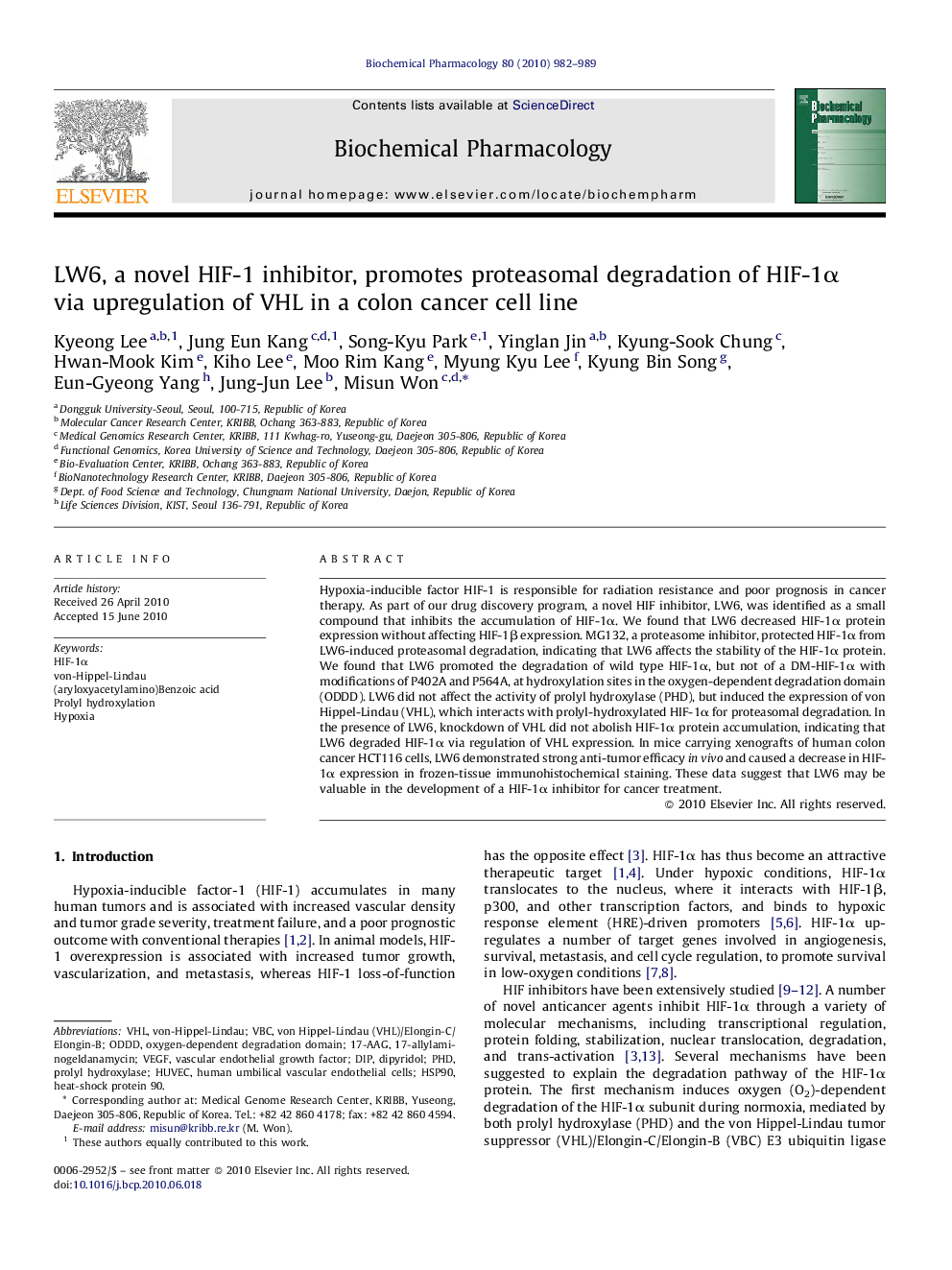| Article ID | Journal | Published Year | Pages | File Type |
|---|---|---|---|---|
| 2513343 | Biochemical Pharmacology | 2010 | 8 Pages |
Hypoxia-inducible factor HIF-1 is responsible for radiation resistance and poor prognosis in cancer therapy. As part of our drug discovery program, a novel HIF inhibitor, LW6, was identified as a small compound that inhibits the accumulation of HIF-1α. We found that LW6 decreased HIF-1α protein expression without affecting HIF-1β expression. MG132, a proteasome inhibitor, protected HIF-1α from LW6-induced proteasomal degradation, indicating that LW6 affects the stability of the HIF-1α protein. We found that LW6 promoted the degradation of wild type HIF-1α, but not of a DM-HIF-1α with modifications of P402A and P564A, at hydroxylation sites in the oxygen-dependent degradation domain (ODDD). LW6 did not affect the activity of prolyl hydroxylase (PHD), but induced the expression of von Hippel-Lindau (VHL), which interacts with prolyl-hydroxylated HIF-1α for proteasomal degradation. In the presence of LW6, knockdown of VHL did not abolish HIF-1α protein accumulation, indicating that LW6 degraded HIF-1α via regulation of VHL expression. In mice carrying xenografts of human colon cancer HCT116 cells, LW6 demonstrated strong anti-tumor efficacy in vivo and caused a decrease in HIF-1α expression in frozen-tissue immunohistochemical staining. These data suggest that LW6 may be valuable in the development of a HIF-1α inhibitor for cancer treatment.
Graphical abstractFigure optionsDownload full-size imageDownload as PowerPoint slide
